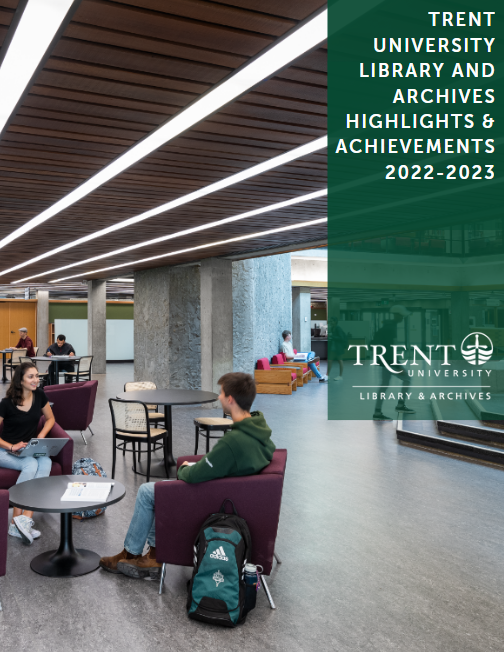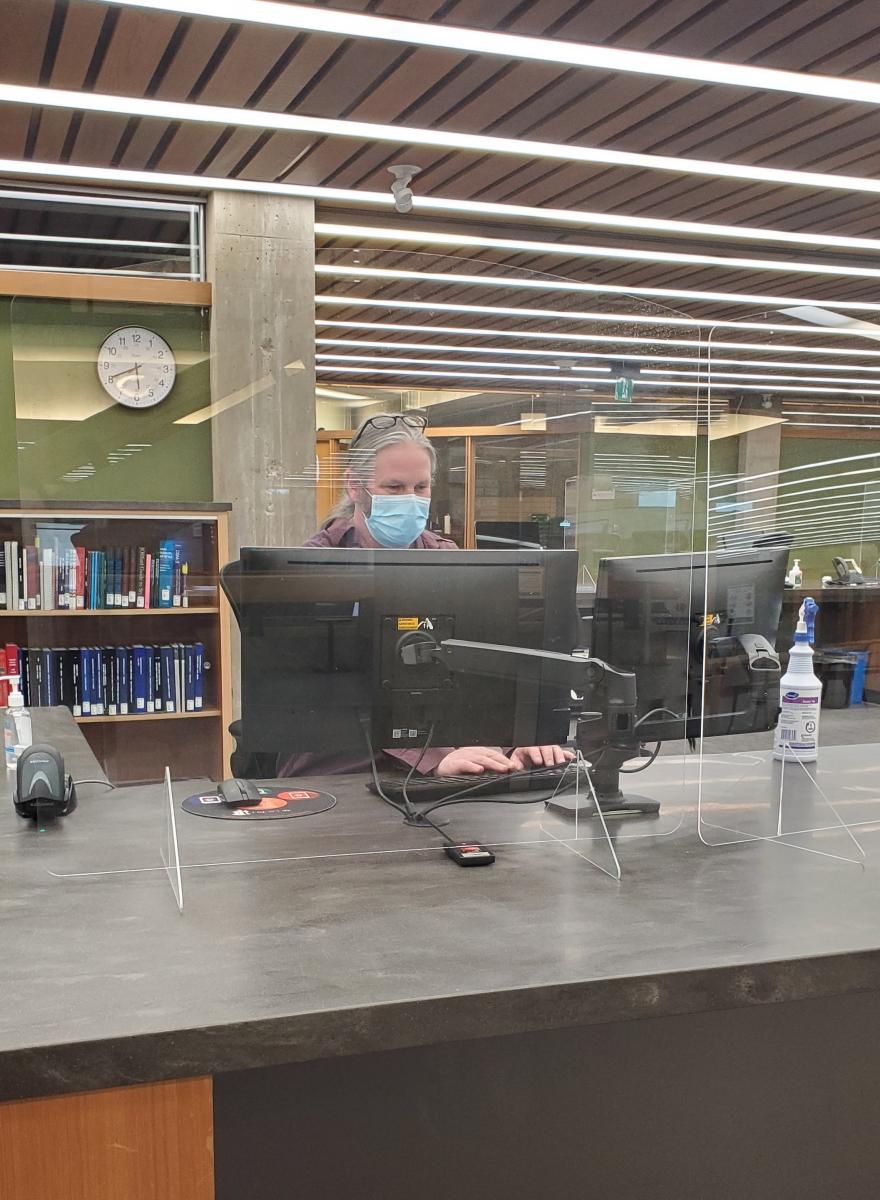Trent University Special Collections Guidelines
Purpose and mandate of Special Collections
The Archives Policy designates the Trent University Archives as responsible for maintaining and providing access to Special Collections. Special Collections include rare books and other published materials that are kept in a secure, climate-controlled facility, with supervised researcher access in the Archives’ Northway Reading Room. Special Collections preserves and makes available the printed record in three key areas, which relate to the Archives’ mandate and complement its holdings.
- Materials that document the history of Trent University and its scholarship;
- Materials that document the history of Peterborough County and the surrounding region;
- Materials that support teaching and research at Trent, with particular emphasis on Canadian Studies, Indigenous Studies, and Northern Studies.
Donations and acquisitions
Donations and suggested purchases for Special Collections will be considered at the discretion of the University Archivist. Unsolicited donations cannot be left at the Archives without prior notice and approval. Donations will not be accepted on the condition that they physically be kept together as a donor or subject-oriented collection. Donors requesting an income tax receipt will pay for the cost of an appraiser, who must be approved by the University Archivist.
Decisions to purchase expensive items require the University Librarian’s approval. Duplicates will not be added, except in the case of heavily used Trent Collection materials, or where material has unique qualities (ex: annotations or inscriptions).
Static collections
Special Collections includes the following named collections, which were donated as a unit. No additions can be made to these collections: A.J.M. Smith Collection of Canadian Poetry and Literature; Charles E. Feinberg Collection; Floyd S. Chalmers Collection of Canadian Explorations; Holm Collection of Children's Books; Margaret Laurence Personal Library; and Robert L. Hunter Collection of Canadiana.
Dynamic collections
The following collections may grow by donation or purchase, at the discretion of the University Archivist and following these guidelines.
Trent Collection
A collection of published works that supports the Archives’ mandate to document Trent University and regional history.
- Includes books written about Trent University and its entities.
- Includes all books written, edited, or with significant contributions by Trent University faculty members and Elders during their employment at Trent, to preserve a record of the scholarly output of Trent community members. Books will be acquired in English and/or the language of original publication.
- Includes books and serials, in all editions, pertaining to Peterborough County. Books pertaining to the counties of Victoria, Northumberland, Durham, Haliburton and Hastings may also be added. These publications support the archives’ mandate to document regional history and culture. Books published under a Peterborough imprint may also be acquired for the Trent Collection.
General Special Collection
Includes all Special Collection materials not included in other named collections. Potential acquisitions include the following:
- Material relating to Indigenous or Northern Studies.
- Canadiana published pre-1900.
- Canadiana published after 1900 but deemed to be rare, valuable, or otherwise at-risk.
- Valuable non-Canadian materials, considered on a case-by-case basis.
- Materials that will support teaching and research at Trent University.
- Materials relocated from General Collection due to their scarcity, value, or otherwise requiring protection. Material transferred from the General Collection will not be rebound.
Theses Collection
Special Collections includes print graduate theses and undergraduate honours theses which are submitted by Trent University students and departments. Digital theses are acquired and hosted on Digital Collections
Camping Book Collection
Includes books related to children’s camps and camping movements, with a particular emphasis on Canada, which complement the Archives’ extensive holdings on camps.
Ernest Thompson Seton Collection
Includes all books, in several editions, written by Ernest Thompson Seton as well as books from Seton's personal library. This is a subject-based collection and additions can be made.
Deaccessioning
On rare occasions, the University Archivist may decide to deaccession materials from Special Collections, for example, when an item’s condition is so poor that it is no longer useful, when another copy of the same book is in better condition or has unique qualities, or where material is more appropriately held by another institution. Deaccessioning may include moving titles to the General Collection, transferring them to another library, archive, or cultural institution, or otherwise disposing of them.
Guidelines developed in Fall 2024 and approved by Librarians Committee on February 8, 2024. These guidelines supersede the Special Collections Policy (1995).
Next date for review: January 2026



